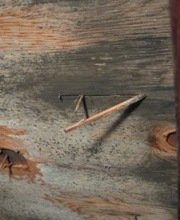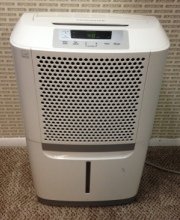Find a Mold Specialist Now
Click or Call, Toll-Free 24/7
Ascospores Mold
Ascospores are a type of mold that typically develops during the winter on fallen, dead leaves that were previously infested. When it rains, it triggers the release spores in the air. You can find this type of mold practically anywhere, but indoors it will start growing on moist materials. Considered an allergen, ascospores produce toxins, which can pose a series of health issues for humans if exposed to for long periods of time.
What is Mold?

Mold is a kind of fungus that comprises small organisms that you can find both indoors and outdoors. Thriving on moisture and reproducing through lightweight airborne spores, mold is virtually unavoidable. There are around 100,000 specifies of mold, and at least 500 of those are known to cause infections.
When exposed to in small amounts, mold is generally harmless. However, when they land on a wet spot in your home and start multiplying, mold can cause serious health concerns. Mildew is a term that refers to a type of fungus, which is also a closely related counterpart of mold. While molds usually appear in darker shades (black, green, red, and blue), mildew is white in color. Both mold and mildew can develop in the home and cause health issues to those exposed.
All molds have the potential to cause health issues due to the allergens they produce. Allergens can trigger reactions or asthma attacks in people who are vulnerable to mold. Some mold types even produce mycotoxins, which are capable of traveling through the human cellular wall and disturbing certain cellular processes, thus causing additional health problems. Listed below are some of the possible symptoms that extended exposure to mold can trigger:
- Allergies
- Bleeding lungs
- Asthma
- Recurring colds
- Breathing issues
- Coughing (sometimes accompanied with blood)
- Dermatitis
- Diarrhea
- Headaches and migraines
- Hives
- Itching of the nose, eyes, mouth, throat, skin or any other body part
- Problems with the central nervous system
- Sinus congestion and issues
- Memory loss and/or memory difficulties
- Mental dysfunction
- Changes in personality
- Irritability
- Excessive, continued or chronic fatigue
- Vision problems and an eyesore
- Hypersensitivity pneumonitis
- Flu symptoms
- Sudden loss of hair
- Hemorrhagic pneumonitis
- Fits of sneezes
Scientific research on animals has proven the direct toxicity of mycotoxins and fungal spores. In addition, studies also suggest that molds and asthma symptoms are connected, and these can include wheezing, coughing, upper respiratory tract issues in otherwise healthy people, as per the U.S. Institute of Medicine.
Molds are unavoidable and you can find them in practically every environment, both indoors and outdoors. Since mold thrives in damp conditions, you will find mold outdoors in humid and shady areas where vegetation and leaves are decomposing.
How Can You Decrease Mold Exposure?
Individuals who are sensitive should be extra careful when it comes to avoiding areas that are likely to have mold, like cut grass, compost piles, and wooded areas. Inside homes, you can slow down the growth of mold by controlling levels of humidity and promoting ventilation in cooking areas and showers. If you detect mold in your home, clean it up immediately and get started on fixing the dampness problem. In addition to that, you can follow the steps below to prevent mold growth in your property.
- Use an AC or a dehumidifier during humid months
- Add mold inhibitors to paints prior to paint application.
- Clean your bathrooms and other humid areas with mold-killing products
- Avoid carpeting basements and bathrooms since the warm and moisture-capturing texture of the carpet can act as a breeding ground for molds.
- Replace or remove previously soaked upholstery and carpets
- Make sure your house has plenty of ventilation, including exhaust fans, and the inflow of natural air.
- Get your HVAC system thoroughly inspected and professionally cleaned since it can act as a breeding ground for mold.
- Here is more tips to prevent mold.
Dealing With Ascospores Mold
Places that are most susceptible to mold include basements, bathrooms, kitchens, attics, crawl spaces, around windows, HVAC ducts, fireplaces, washing machine, garage, carpets, inside or on walls. If you see or smell mold, we suggest that you get in touch with a mold expert who can determine the extent of the problem, and remove it for you. Though removing mold on your own can seem like an inexpensive route, it can pose threat to your health, especially if you lack the necessary tools and protective gear.
A professional mold removal service will not only follow the required safety protocol but also make a preliminary assessment, an assessment during mold remediation as well as a post-remediation assessment. This testing measures the mold spore levels in your home before, during and after the remediation process. In addition to that, experts will set up containment to prevent the spread of mold from contaminated to non-contaminated areas. Lastly, the experts will properly determine the main cause of the mold, and fix the issue so that the mold does not return.
Moreover, sometimes mold can be hard to reach, especially if has settled in your HVAC system. In such a case, the damage can even be greater since it will likely spread in your ducts and keep multiplying fast, and in turn, spread throughout your entire house very quickly.
In order to avoid all these problems and also save money in the long run, it is best to reach out to professionals who have the necessary knowledge and equipment to properly and safely remove the mold. We advise scheduling a free consultation with a mold removal specialist who will advise you on the best course of action. Even if you ultimately decide to do the work yourself, you will still be able to benefit from free expert advice. Follow this link to learn more about qualified and experienced mold removal experts in your area.
Return From Ascospores To Our Main Mold Types Page
Privacy Policy Terms and Conditions Accessibility Do Not Sell My Information Disclaimer Contact Us




